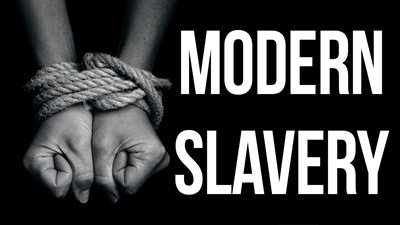
Unseen Chains: Shedding Light on Modern Day Slavery in the Care Sector
In the 21st century, where progress is often celebrated, there exists a dark reality hidden in plain sight: modern day slavery. While many might associate this issue with historical contexts, the grim truth is that it persists today, even infiltrating seemingly noble sectors like the care industry. Within the folds of caregiving, exploitation and coercion thrive, overshadowing the very essence of compassion and support. In this blog, we delve into the depths of modern day slavery within the care sector, exposing the unseen chains that bind the vulnerable.
Caregiving is often perceived as a profession driven by compassion and altruism, yet beneath this facade lies a sinister underbelly. Exploitative practices such as forced labor, debt bondage, and human trafficking have infiltrated the care sector, perpetuating a cycle of abuse and vulnerability. Vulnerable individuals, including migrants and marginalized communities, are lured into this industry with promises of employment and stability, only to find themselves trapped in situations of exploitation and abuse.
One of the hallmarks of modern day slavery within the care sector is exploitative employment practices. Care workers, often underpaid and overworked, are subjected to grueling hours with little to no respite. Many are denied basic rights such as proper wages, rest breaks, and access to healthcare. In some cases, workers are forced to live in cramped and unsanitary conditions, further exacerbating their vulnerability.
Beyond exploitative employment practices, coercion and control play a central role in perpetuating modern day slavery within the care sector. Many care workers find themselves trapped in situations of debt bondage, owing exorbitant fees to recruitment agencies or employers. These debts serve as a form of leverage, allowing employers to maintain control over their workers through threats of deportation or other forms of retaliation.
Furthermore, psychological manipulation and intimidation tactics are often employed to maintain compliance and silence dissent. Care workers may be subjected to verbal abuse, threats of violence, or isolation from their support networks, leaving them feeling helpless and trapped in their circumstances.
Perhaps the most egregious manifestation of modern day slavery within the care sector is human trafficking. Vulnerable individuals, including women and children, are trafficked across borders under the guise of legitimate employment opportunities in the care industry. Once ensnared in the web of trafficking networks, victims are subjected to exploitation, abuse, and dehumanization.
Trafficked individuals are often stripped of their passports and identification documents, rendering them invisible to authorities and perpetuating their cycle of exploitation. The clandestine nature of human trafficking makes it difficult to detect and combat, allowing traffickers to operate with impunity and exploit countless victims with impunity.
The scourge of modern day slavery within the care sector represents a gross violation of human rights and dignity. Behind the veneer of compassion and support lies a reality marred by exploitation, coercion, and abuse. Addressing this issue requires a multi-faceted approach that includes robust legal protections for care workers, stringent oversight of employment practices, and increased awareness and education about the signs and consequences of modern day slavery.
